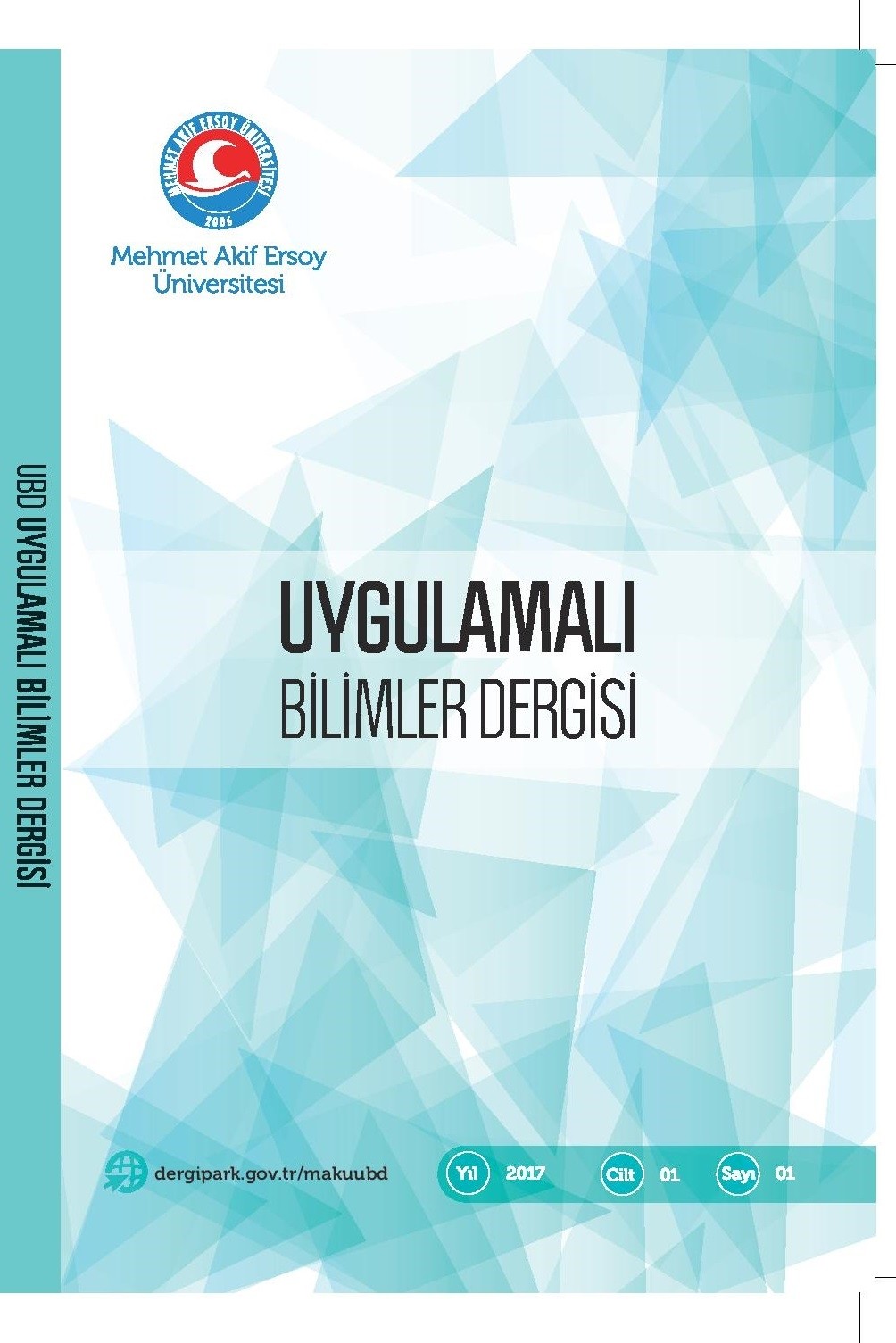LPG (R1270-PROPİLEN) SOĞUTUCU AKIŞKAN KULLANILAN BUHAR SIKIŞTIRMALI SOĞUTMA SİSTEMİNİN ENERJİ ANALİZİ
Buhar sıkıştırmalı soğutma, COP, enerji analizi, LPG, Propilen
ENERGY ANALYSIS OF VAPOR COMPRESSION REFRIGERATION SYSTEM USING LPG (R1270-PROPYLENE) AS REFRIGERANT
Vapor compression refrigeration, COP, Energy analysis, LPG, Propylene,
___
- [1] Sincar, S. (1999). R134a Soğutucu akışkan ile çalışan ticari soğutucu tasarımı, imalatı ve performans deneyleri, Yüksek Lisans Tezi, Niğde Üniversitesi, Fen Bilimleri Enstitüsü.
- [2] Aprea, C. & Renno, C. (2004). Experimental comparison of R22 with R417A performance in a vapour compression refrigeration plant subjected to a cold store, Energy Conversion and Management, (45),1807-1819.
- [3] Kabul, A. Kizilkan, O. & Yakut, A.K. (2008). Performance and exergetic analysis of vapor compression refrigeration system with an internal heat exchanger using a hydrocarbon, isobutane (R600a), International Journal of Energy Research, (32), 824-836
- [4] Arora, A. & Kaushik, S.C. (2008). Theoretical analysis of a vapour compression refrigeration system with R502, R404A and R507A, International Journal of Refrigeration, (31), 998-1005.
- [5] Cengel, A.Y. & Boles, A.M. (1994). Thermodynamics: An Engineering Approach, McGraw-Hill, New York, A.B.D.
- Yayın Aralığı: Yılda 2 Sayı
- Başlangıç: 2017
- Yayıncı: Burdur Mehmet Akif Ersoy Üniversitesi
Akışkan Şarj Oranının Düşük Sıcaklıklarda Yerçekimi Destekli Isı Borusu Performansına Etkisi
Ragıp YILDIRIM, Abdullah YILDIZ, Ahmet ÖZSOY
Kamu Üniversitelerinde İç Kontrol ve Kalite Uygulamaları: Mehmet Akif Ersoy Üniversitesi Örneği
Konuşmacı Cinsiyetinin Tespitinde Değişik Normalizasyon Tekniklerinin Kıyaslanması
Serhat İLERİ, Armağan KARABİNA, Erdal KILIÇ
Kurs Oranı Ve Artık Gaz Kesrinin Otto Çevrimli Bir Motorun Performansına Etkisi
GERONTOLOJİ LİSANS EĞİTİMİNDE VERİ ARAŞTIRMALARI YOLUYLA İSTATİSTİK ÖĞRETİMİ
LOJİSTİKTE TAŞIMA ŞEKİLLERİNİN BELİRLENMESİ: BİR KOMBİNE TAŞIMACILIK ÖRNEĞİ
Bahadır GÜLSÜN, Burak ERKAYMAN
İhracatın Finansmanında Şer’i Kurallara Uygun Alternatif Yaklaşım; Türkiye Örneği
Dr.öğr.ü.serdar KUZU, Dr.hakan BEROĞLU, Dr.temur KAYHAN, Dr.halil ARSLAN
